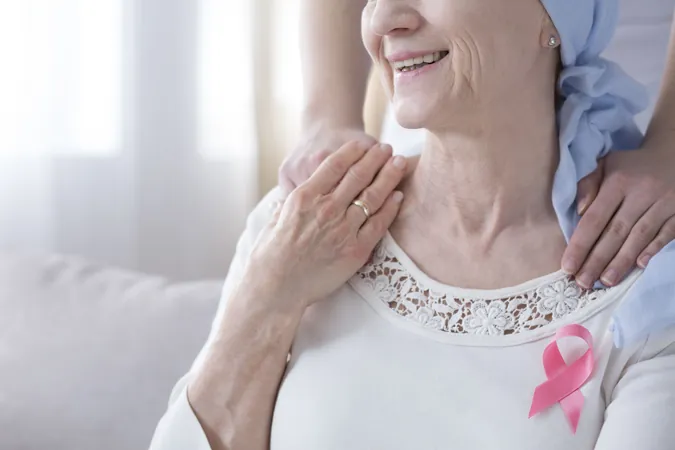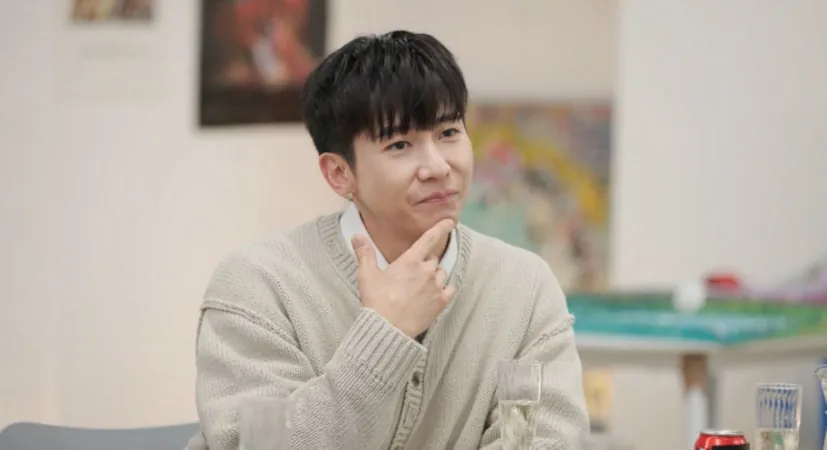
Unlocking the Power of Acupuncture: What Influences Expectancy in Breast Cancer Survivors?
2025-04-11
Author: Rajesh
How Social Factors Shape Acupuncture Expectations
Recent findings from the 2025 Oncology Nursing Society Congress reveal that social determinants significantly influence how breast cancer survivors perceive acupuncture as an alternative therapy. Cultural beliefs, education, and financial status emerged as key factors shaping these attitudes towards this integrative oncology treatment.
Unveiling the Numbers: What the Study Reveals
A robust multivariate regression analysis identified several predictors of acupuncture expectancy. Factors such as financial needs (0.318; P = .004), race (with White participants showing a notable expectancy of 0.563; P = .009), and education level—particularly those with some college education or more (1.07; P <.001)—played significant roles. Interestingly, symptoms like arm pain also influenced expectancy (0.47; P = .023). Physical function, however, was not a significant predictor.
Patients' High Hopes for Acupuncture
Participants expected acupuncture to alleviate various cancer-related symptoms like pain and fatigue, rating their hopefulness at an average of 4.2 out of 5 for pain relief. They also believed it would help them cope with their cancer and reduce emotional distress, reflecting an expectancy score of 3.9. Additionally, they felt that acupuncture could mitigate the risk of future health problems, scoring it a 3.3.
The Cultural Dimension: Differences Among Racial and Ethnic Groups
Hannah Choi, MSN, RN, a researcher from the University of Illinois Chicago, pointed out the importance of sociocultural influences on perceptions of complementary therapies. The study highlighted that cultural perceptions of acupuncture can vary widely among different racial and ethnic groups, underscoring the need to consider these factors when integrating such therapies into healthcare.
A Comprehensive Study Design
In total, 74 women aged 18 and above with breast cancer stages ranging from 0 to III participated in this study, which analyzed baseline data from two separate acupuncture trials involving 5 to 10-week interventions. The researchers emphasized that understanding these expectations is crucial, as they guide treatment adherence and effectiveness.
Demographic Insights That Matter
Participants averaged 54 years in age and were predominantly Black (49%) and White (45%), with a smaller representation of Asian or Pacific Islander individuals (6%). Educational attainment varied, with 18% having only a high school diploma or lower. The study also shed light on financial challenges, as 57% had an annual household income of less than $55,000.
A Call for Better Integration of Acupuncture in Cancer Care
Choi concluded by emphasizing that understanding the individual factors influencing acupuncture expectancy is essential for its successful integration into oncology care. This could ultimately enhance the quality of life for breast cancer survivors and pave the way for more personalized treatment plans.
Conclusion: A Promising Future for Acupuncture in Oncology
As acupuncture continues to gain recognition in the field of oncology, these findings highlight the vital role of social determinants in shaping patient attitudes. The potential for this ancient therapy to offer relief and improve well-being for breast cancer survivors is indeed promising.




 Brasil (PT)
Brasil (PT)
 Canada (EN)
Canada (EN)
 Chile (ES)
Chile (ES)
 Česko (CS)
Česko (CS)
 대한민국 (KO)
대한민국 (KO)
 España (ES)
España (ES)
 France (FR)
France (FR)
 Hong Kong (EN)
Hong Kong (EN)
 Italia (IT)
Italia (IT)
 日本 (JA)
日本 (JA)
 Magyarország (HU)
Magyarország (HU)
 Norge (NO)
Norge (NO)
 Polska (PL)
Polska (PL)
 Schweiz (DE)
Schweiz (DE)
 Singapore (EN)
Singapore (EN)
 Sverige (SV)
Sverige (SV)
 Suomi (FI)
Suomi (FI)
 Türkiye (TR)
Türkiye (TR)
 الإمارات العربية المتحدة (AR)
الإمارات العربية المتحدة (AR)